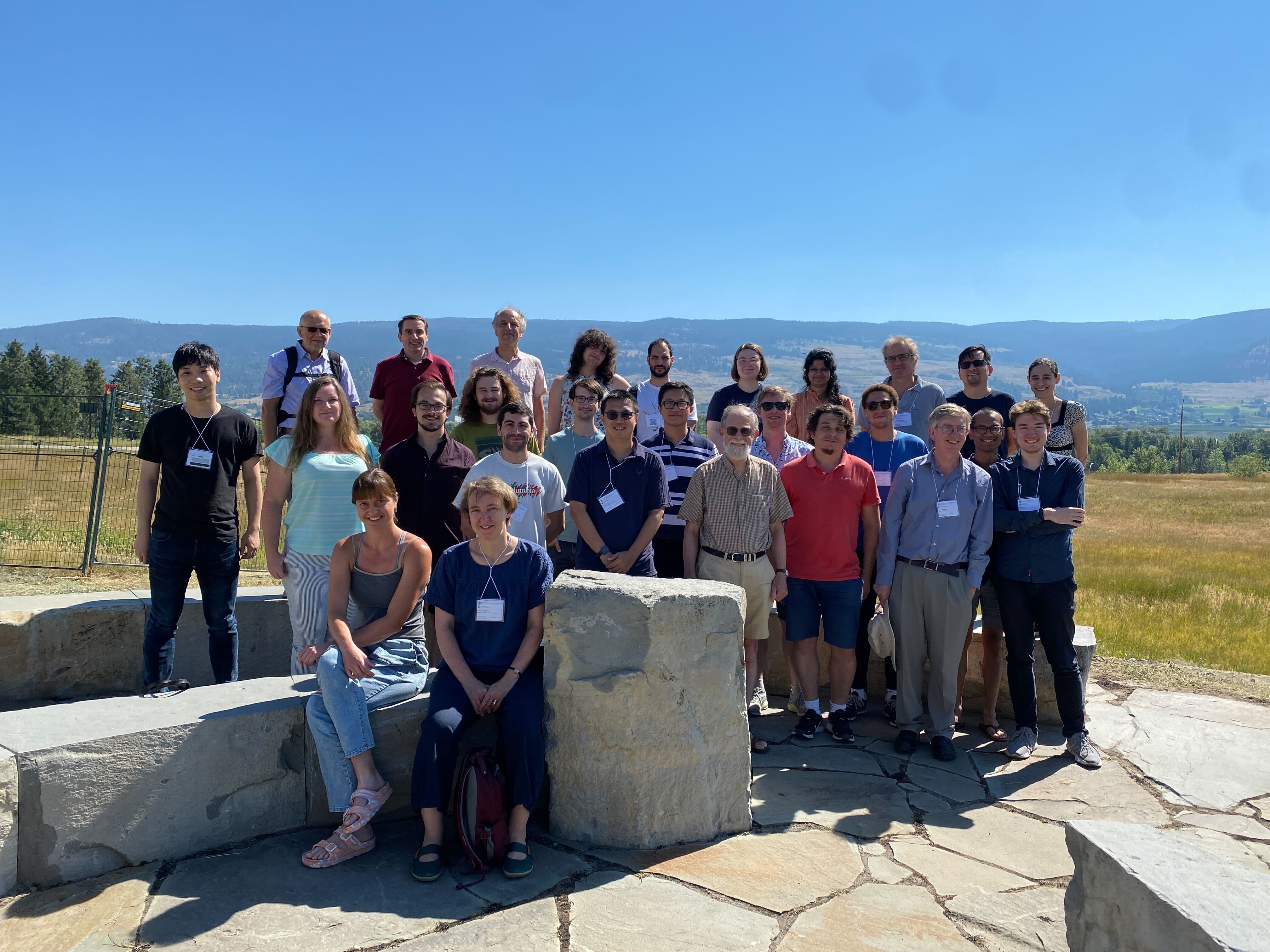Thermodynamic Formalism for Geodesic Flows (23w5095)
Organizers
Daniel Thompson (The Ohio State University)
Keith Burns (Northwestern University)
Tamara Kucherenko (The City College of New York)
Agnieszka Zelerowicz (University of California - Riverside)
Description
The Banff International Research Station will host the "Thermodynamic Formalism for Geodesic Flows" workshop at the UBC Okanagan campus in Kelowna, B.C., from July 16 to July 21, 2023.

The science of probability gives very precise descriptions of the long-term behavior of sequences of random events in which there is no correlation between events occurring at different times, such as a sequence of independent coin flips. Many deterministic systems lack this independence but still appear to exhibit long-term randomness because the system "loses its memory of where it was". In order to gain a precise understanding of this behavior, it is necessary to use tools from statistical mechanics to study the "thermodynamic formalism" of the system. This theory is well-developed in some settings, but these are fairly restrictive and it is an important question to determine how this theory extends to broader classes of systems.
This workshop will study this question for systems of geometric origin. One example of this is a particle bouncing inside a region -- think of a ball bouncing around a billiard table, or a light beam bouncing around a room whose walls are mirrors. If the walls are flat then the behavior is fairly predictable, but if they are curved then one often observes random-looking behavior in the long run. Or imagine walking in a straight line along a surface; if the surface is flat then changing the starting point a little will lead to a predictable change in the trajectory. However, if the surface is curved like a saddle then different trajectories will spread out and your location after walking for a long time will eventually seem to be random. The task of giving precise descriptions of systems such as these requires a more complete development of the theory of thermodynamic formalism for systems of geometric origin, which is precisely the goal of this workshop.
The Banff International Research Station for Mathematical Innovation and Discovery (BIRS) is a collaborative Canada-US-Mexico venture that provides an environment for creative interaction as well as the exchange of ideas, knowledge, and methods within the Mathematical Sciences, with related disciplines and with industry. BIRS is supported by Canada's Natural Science and Engineering Research Council (NSERC), the U.S. National Science Foundation (NSF), Alberta's Advanced Education and Technology, and Mexico's Consejo Nacional de Ciencia y Tecnología (CONACYT).





